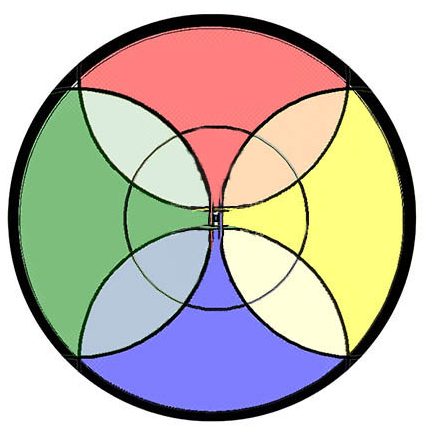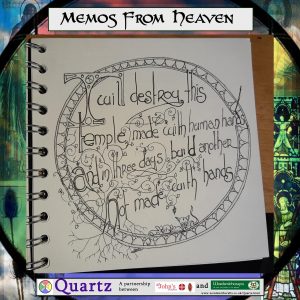Most of life is filled with questions about “what”and “how”. What do you want to do to day? How will we manage that? Then someone will answer the first question with “For everyone to be happy” or “to have fun” and the second question often becomes very difficult to answer.
This may be because a whole load of “Why?” Questions haven’t been asked, let alone answered.
It isn’t possible, or wise, to only spending your time pondering the why questions – but if your whole life is taken up with how and what then you may find yourself wondering why you are doing any of it at all.
The “why?” questions involve daydreaming about possible worlds, they create fantasies which challenge the status quo. They are also taking time to explore where a curious sound is coming from, or to immerse oneself in the presence of the moment and encounter the profound depth of a changed state of awareness (#SensingAwareness).
This is the theme which surrounds folk stories of Espen Askelad. A daydreamer whose inability to carry out normal everday tasks and think about useful things means that he is relegated to blowing on the fire and getting covered in ashes. (Watch a recording of one of these stories here Askelad/Dustmincher vs the Stoorwurm/Dustdragon) That is, until in the story, his ability to notice the things normal people ignore make him the hero as he succeeds in a challenge normal people find impossible.
October can become a season of mists. After the last of the harvest has been gathered in and before the hard winter has set in can be a time of reflection. Perhaps it can be a time to question our understanding of common sense too. One commonly held modern assumption about life is that the death is better described as the end of life beyond which there can be no knowledge or enquiry, rather than a state change with multiple possibilities for the continuation of personal identity.
But what would you want to know about life after death, other than the straightforward answer about whether it is possible or not. How would you find any trustworthy information anyway? The age in which we live is characterised by a focus on material answers and the practical needs of here and now. Throughout it certain topics have been classed as superstition, or primitive. In colonial settings this has been used to justify the exploitation of land (and people) classified as undeveloped. Here are few who wonder around the topic and such questions. It also led to, or perhaps rose out of, a suppression of spiritual and emotional truth to (mere) private experience. There have always been those who have stood against this and when not dismissed as ‘pagan’ they have explored in the arts especially science fiction and fantasy.
Times are changing. As established ideas of authority are crumbling there is an increasing openness to exploring spirituality, and exploring it as communities as well as privately. Consumerism, fast fashion, gross domestic product and the other children of materialism and a belief in progress still grip our culture. I’m not arguing that we should repeat extremist errors like cancelling Christmas parties, but traditional celebrations like Halloween have become appropriated by commercialism. Yet another festival remembered with a Christian name has become an opportunity to distract people from wondering why they live, and what their lives could be like or how they could recreate the world around them.
The Director and his students stood for a short time watching a game of Centrifugal Bumble-puppy. Twenty children were grouped in a circle round a chrome steel tower. A ball thrown up so as to land on the platform at the top of the tower rolled down into the interior, fell on a rapidly revolving disk, was hurled through one or other of the numerous apertures pierced in the cylindrical casing, and had to be caught.”Strange,” mused the Director, as they turned away, “strange to think that even in Our Ford’s day most games were played without more apparatus than a ball or two and a few sticks and perhaps a bit of netting. imagine the folly of allowing people to play elaborate games which do nothing whatever to increase consumption. It’s madness. Nowadays the Controllers won’t approve of any new game unless it can be shown that it requires at least as much apparatus as the most complicated of existing games.” …
Brave New World, Aldous Huxley, ch.3
This time of year is an opportunity. If we take time to study the history of our own tradition, and overcome the prejudices we have inherited, perhaps ‘enlightened’ by that experience we will then be able to help people find light. If we take time out to dream and explore issues that have been ignored or dismissed out of hand, then perhaps we will be better able to help those who feel lost.
This link could be a start.
https://ghostsghoulsandgod.co.uk/2021/10/praying-for-the-dead/





















